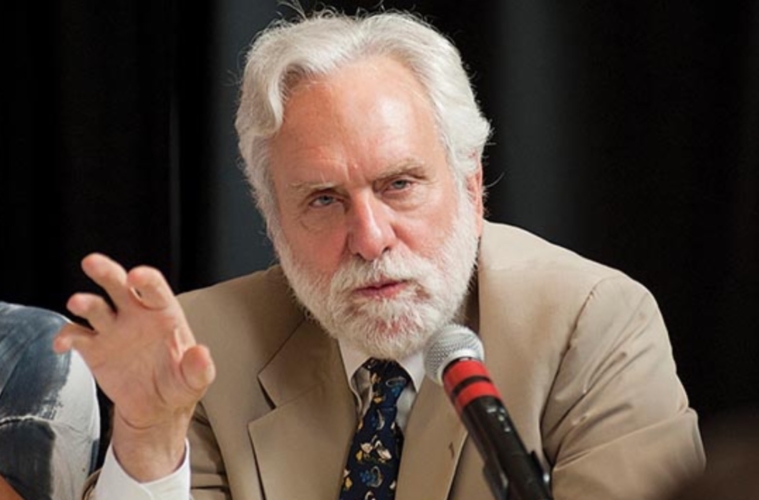Dec. 2, 1948–Aug. 11, 2022
In his career as an appellate lawyer, Dennis Riordan ’70 took on high-profile cases that made headlines. He accepted clients who had been vilified, and he treated them with dignity. Riordan “understood the humanity of the client,” one of his colleagues said in his San Francisco Chronicle obituary. In fact, Riordan developed such a rapport with his clients that some of them stayed in touch until the end of his life.
One of those people was Hamid Hayat, a Muslim man who — thanks to Riordan — was exonerated after spending 14 years in prisons like “Little Gitmo” because he was falsely connected to a terrorist group.
Another was John Spain, a former Black Panther who was one of the “San Quentin Six” involved in the Attica State Prison uprising. Riordan helped overturn Spain’s 1971 murder conviction.
Throughout his 40-year career, Riordan developed a reputation as a lawyer who “would take on the hardest criminal appeals and stick with them the longest,” the Chronicle wrote.
Riordan demonstrated his willingness to stand up for others during his student years at Colgate, friends recall. Jim Smith ’70 remembers Riordan defending 11 students before the University Judiciary Board. “They were facing discipline for blocking Marine recruiters at the career services center,” Smith explains. “Dennis argued that Colgate’s core operation had not been disrupted because military recruitment was not an essential function of a liberal arts college. They got off, like so many of his later clients.”
Mark Nozette ’71 adds: “When we were undergraduates, I often wondered if Dennis ever slept. In the spring of 1969, he was elected overwhelmingly as student government president because his peers understood that he would be an indefatigable leader who could bring people together in tumultuous times.”
After graduating from Colgate as a sociology and anthropology major, Riordan earned his JD from New York University. He moved to San Francisco, where he began his career working for a criminal defense attorney who was defending Spain. Riordan then joined the state public defender’s office, where he started the lengthy appeal for Spain.
The case “set the mold for the rest of Riordan’s career,” the Chronicle reported. “…He took cases that he believed in — ones where it seemed obvious that the legal system had screwed up, a person had been wrongfully convicted and there was some vital constitutional principle that would be vindicated by fixing the mistake.”
This magazine last wrote about Riordan when he teamed up with documentarian Joe Berlinger ’83 to free Damien Echols from death row. Echols was one of the “West Memphis Three” who were convicted of murdering three boys in Arkansas in 1993. Riordan, who had long been in private practice when Echols’ wife called, was hesitant to take the case. But he agreed to look into it for her and was amazed to find no credible evidence linking Echols to the murders. Riordan used DNA evidence to help him win.
In 2020, Riordan was honored by the Appellate Lawyer Hall of Fame. Although he had been diagnosed with colon cancer in 2015, Riordan kept working. His longtime law partner, Donald Horgan, remembers him saying: “I have things I have to get done. I have to get Hamid out of prison.”
Even in his final hours, Riordan was tying up loose threads at work and making phone calls to say goodbye. He even called the Chronicle so the paper could get a head start on his obituary.
“He was, until the very end, running the show,” his daughter, Lisa, wrote in an email to friends and family. In addition to Lisa, Riordan’s surviving family includes his sister.
A few days before he died, Riordan was visited by Hayat at his home. “He was the centerpiece of my life,” Hayat told the Chronicle. “I just thanked him for everything he did for me. I said, ‘…If you weren’t my appeals attorney, God knows, I might still be in prison.’”

